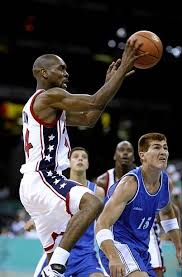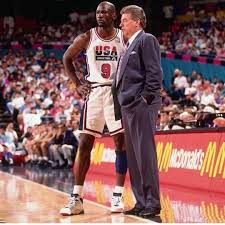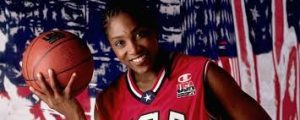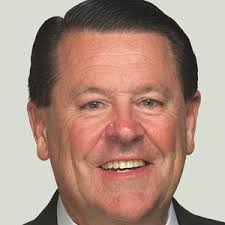The NBA Finals date back to 1947 (when they were known as the Basketball Association of America Finals) and the very 1st NCAA tourney was held in 1939. Olympic basketball competition is even older: it debuted as a demonstration event in 1904 and the men’s version became a medal sport in 1936, with the women finally getting their chance to go for the gold in 1976. The United States has dominated Olympic basketball competition from the start: the men have won 15 gold medals in the 18 tournaments they have participated in during the past 84 years, while the women have won 8 gold medals in the 10 tournaments in which they have competed during the past 44 years. Those of you who were looking forward to the 2020 Olympics opening ceremonies in Tokyo on July 24, 2020 will have to wait an extra 364 days, as the coronavirus caused a postponement until July 23, 2021. Due to the absence of college basketball since mid-March, HoopsHD’s Jon Teitel decided to fill the void by trying to interview as many prior Olympic players/coaches as possible so that you have something to read this summer while not watching the Summer Games. We continue our coverage by chatting with Gary Payton about winning a pair of gold medals in 1996/2000. Today is his 52nd birthday so let us be the 1st to wish him a happy 1!
In 1990 you were named All-American/conference POY at Oregon State, and you were later named to the Pac-10 All-Decade Team: what did it mean to you to receive such outstanding honors? They were great accomplishments and I truly felt honored.
What are your memories of the 1987 NIT (you scored 18 PTS and Eric Knox banked in a double-pump 3-PT shot with 1 second left in a 3-PT win over New Mexico)? We played at “The Pit” and it was a hard-fought game. It was a great game because we were able to hold on, get the win, and move onto the next round.
What are your memories of the 1989 NCAA tourney (you had a tourney-school-record 31 PTS/10 AST but Reed Crafton made a 24-foot step-back 3-PT shot with 8 seconds left in a 4-PT OT win by Evansville in the final game of Ralph Miller’s 38-year coaching career)? We played this game in Arizona and it was a huge loss for our team. We just did not come through and did not make the right plays at the right times.
In the 1990 NCAA tourney you scored 11 PTS before fouling out, and Paris McCurdy made a 5-footer and then the game-winning FT after and being fouled at the buzzer in a 1-PT win by Ball State: where does that rank among the most devastating losses of your career? This loss ranks #1: no doubt. I fouled out with 10 minutes to go in the game and had to sit on the bench and watch my teammates: I could not help them. It was my senior year and it was devastating to me.
In Game 5 of the 1994 Western Conference 1st round as a player for Seattle you had 14 PTS despite playing with a foot injury in a 4-PT loss to Denver at home (the 1st time that a #8 seed ever beat a #1 seed in the playoffs): do you think that the outcome would have been different if you had been healthy? Yes. I think the outcome could have been different if I was healthy but I cannot take anything away from Denver. They played well and we gave up. However, I do think that if I was not injured then I could have given my team some more offense.
Since your Laker teammates Shaquille O’Neal/Kobe Bryant were covered at the end of Game 5 of the 2004 Western Conference Semifinals, you inbounded the ball to Derek Fisher with 0.4 seconds left and he made an 18-foot jumper in a 1-PT win over San Antonio to end their 17-game winning streak at home: how did Lakers Coach Phil Jackson design the play, and where does Fisher’s shot rank among the most clutch shots you have ever seen? This particular play was designed for Kobe but he was double-teamed so I went to D-Fish and he knocked the shot down. I say this shot ranks in my top-15 most clutch shots.
Take me through the magical 2006 Finals as a player for Miami:
In Game 3 you made a 20-foot jumper with 9.3 seconds left in a 2-PT win over Dallas: where does that rank among the biggest shots of your career? This shot probably ranks in my top-3 all time. If I did not make the shot then Dallas would have had the momentum and we would not have had the opportunity to win the championship.
After losing the 1st 2 games in Dallas you won the next 4 to clinch the title: what did it mean to you to win the title, and what was the feeling like in your locker room afterward? I was overjoyed when we won the NBA title. I finally felt like I had completed everything in my 17-year career so I was happy/satisfied. The locker room was a place of huge celebration/vindication. We were predicted to lose and Coach Pat Riley was criticized for going with “older” guys but we proved everyone wrong.
You were selected to the NBA All-Defensive 1st-team 9 years in a row from 1994-2002, you remain #4 all-time with 2445 career STL, and in 1996 you became the 1st PG ever named NBA DPOY: what is your secret to being a great defender, and do you think that we will ever see another PG win the award? My college coach Ralph Miller taught me how to play defense. He told me that I had great hands and if I focused on moving my feet I could become a great defensive player so that is what I worked on continuously: moving my feet/hands. I do not think that we will see another PG win the DPOY award because defense is not played the same way today.
You are 1 of a handful of basketball players to win multiple Olympic gold medals for team USA: where does that rank among the highlights of your career? The Olympics rank #1 for me. There is no better feeling than winning the gold medal for your country. To bow your head as they place the medal around your neck and watch the USA flag raised is an incredible experience and 1 of the greatest moments of my basketball career.











